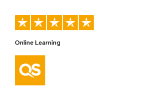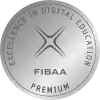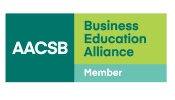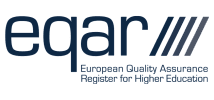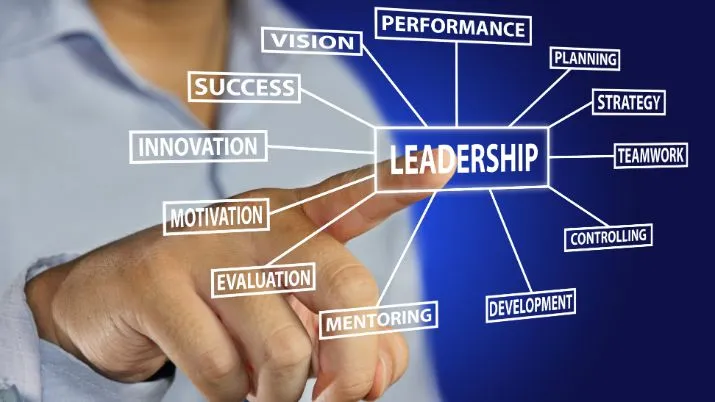
Leadership Essentials
The Leadership Essentials course is designed to provide individuals with foundational knowledge and skills necessary for effective leadership in various contexts. Whether in business, non-profit organizations, or community settings, leadership plays a critical role in driving success and fostering growth. This course typically covers key concepts such as communication, team building, decision-making, and conflict resolution, among others.
Overview

Leadership Essentials
Course Learning Objectives
Course Overview:
The Leadership Essentials course is a foundational program designed to equip leaders with the skills and knowledge necessary to lead effectively in any organizational setting. The course focuses on developing leadership competencies, building trust, and fostering a positive work environment. Through interactive sessions, case studies, and group discussions, participants will explore the key principles of leadership, including communication, visioning, decision-making, and problem-solving.
Course Learning Objectives (CLOs):
Understand the fundamentals of leadership: Participants will gain an understanding of the theoretical foundations of leadership, including different leadership styles, leadership theories, and the importance of emotional intelligence.
Develop effective communication skills: Participants will learn how to communicate effectively with diverse stakeholders, including employees, customers, and colleagues.
Build trust and foster a positive work environment: Participants will understand how to establish trust, build strong relationships, and create a positive work culture.
Make informed decisions: Participants will learn how to gather information, analyze data, and make informed decisions that align with organizational goals.
Develop problem-solving skills: Participants will learn how to approach problems in a systematic way, identify potential solutions, and evaluate their effectiveness.
Student Learning Outcomes (SLOs):
By the end of the course, participants will be able to:
Analyze leadership theories and models: Demonstrate an understanding of various leadership theories and models and their application in real-world scenarios.
Communicate effectively with diverse stakeholders:
Communicate effectively with employees, customers, and colleagues using verbal and written communication skills.
Build trust and establish relationships: Build trust with others by demonstrating empathy, honesty, and respect.
Make informed decisions: Gather information, analyze data, and make informed decisions that align with organizational goals.
Develop problem-solving skills: Approach problems in a systematic way, identify potential solutions, and evaluate their effectiveness.
By achieving these learning outcomes, participants will be equipped with the essential skills and knowledge necessary to become effective leaders who can inspire and motivate others to achieve organizational goals.

Benefits
With AI, the world is your oyster! It is an emerging field, rapidly growing, ever evolving and watched with a keen eye by industries and markets globally. There are many benefits to an education in AI:
In demand Career
With a Bachelor in artificial intelligence you are equipped with in-demand skills in the rapidly growing field of AI. Knowledge of developing AI systems, data analysis and AI techniques makes you valuable across industries, right from healthcare, finance, tech and more. This degree prepares you for career that has multiple options for diversification. AI professionals include AI engineers, data scientists, machine learning specialists, AI consultants, researchers and more. AI is transformative technology that is revolutionising the world. With an education background in AI, you are set up in an in-demand career field with an exciting future ahead!
Innovation and advancement
Applied AI is all about finding solutions and using AI systems to make life simpler. Applied AI draws on its solid foundation in Computer Science to analyse and provide solutions for real world challenges. You are prepared to address complex problems and contribute meaningfully in domains like healthcare diagnostics, fraud detection, autonomous vehicles, personalised recommendations and more. Being able to apply AI techniques for solving tasks makes for an extremely rewarding and impactful job role!
Solving real world problems
AI aims to constantly bridge the gap between natural intelligence and machine learning - it is a field of cutting edge research, innovation and advancing technology. This makes it ever evolving, with new algorithms, models and techniques being developed. By studying AI at an undergraduate level, you gain a strong foundation in AI fundamentals that help you better understand the latest advancements. You step into a career that empowers you to push the boundaries of AI, contribute to research and development and drive innovation in the field.
100% International
Study at your own pace from anywhere in the world
Recommended by 96% of our graduates
According to our latest alumni survey
50,000+ students
enrolled in Germany’s largest university
Study contents
Contents
Module 1: Introduction to Leadership
Definition of leadership and its importance
Characteristics of effective leaders
The role of leadership in organizations
Types of leadership styles
The benefits of effective leadership
Module 2: Self-Awareness and Emotional Intelligence
Understanding personal strengths and weaknesses
Emotional intelligence and its role in leadership
Self-awareness and its impact on decision-making
Building self-confidence and self-esteem
Module 3: Communication Skills
Verbal and non-verbal communication techniques
Active listening and effective communication
Conflict resolution and negotiation skills
Public speaking and presentation skills
Module 4: Motivation and Team Building
Understanding motivation theories (e.g. Maslow's Hierarchy, Herzberg's Two-Factor Theory)
Creating a positive work environment
Building high-performing teams
Effective delegation and empowerment strategies
Module 5: Problem-Solving and Decision-Making
Decision-making models (e.g. DECIDE, Eisenhower Matrix)
Problem-solving strategies (e.g. SWOT analysis, brainstorming)
Analyzing data and making informed decisions
Crisis management and problem-solving under pressure
Module 6: Leadership Styles and Situational Leadership
Autocratic, democratic, and laissez-faire leadership styles
Situational leadership theory (Hersey-Blanchard Model)
Flexibility in leadership style
Adapting to changing situations
Module 7: Strategic Planning and Goal Setting
Strategic planning processes (e.g. SWOT analysis, mission statements)
Setting SMART goals and objectives
Developing a plan to achieve goals
Monitoring progress and adjusting strategy
Module 8: Ethics and Accountability
Ethical dilemmas in leadership
Principles of ethical leadership (e.g. honesty, fairness, transparency)
Accountability and responsibility in leadership
Building a culture of ethics in the organization
Module 9: Leadership in a Global Context
The impact of globalization on leadership
Cultural differences in leadership styles
Building global teams and leading remotely
Adapting to international business environments
Module 10: Leading Change and Innovation
Change management theories (e.g. Kotter's 8-Step Process, Lewin's Change Curve)
Leading innovation and creativity
Managing resistance to change
Encouraging continuous learning and development
Module 11: Coaching and Mentoring
The role of coaching in leadership development
Effective coaching techniques (e.g. GROW model)
Mentoring programs for employee development
Building a culture of coaching and mentoring
Module 12: Leading Virtual Teams
The challenges of leading virtual teams
Effective communication strategies for virtual teams
Building trust and collaboration in virtual teams
Managing virtual team members
Admission
Admission Criteria
Eligibility:
Professional Background: Typically, candidates are mid-level professionals with at least 3-5 years of work experience in their current role or in a related field.
Job Responsibility: Candidates should be in roles with significant responsibilities, such as team leads, supervisors, or managers.
Leadership Potential: Candidates should demonstrate potential for leadership growth and development.
Academic Requirements:
Bachelor's Degree: A bachelor's degree in any field from an accredited institution is typically required.
GPA: A minimum GPA of 3.0 or higher may be required.
Professional Development and Experience:
Leadership Experience: Candidates should have some leadership experience, even if it's informal or limited.
Industry Experience: Candidates should have experience working in their current industry or a related field.
Relevant Training or Certifications: Candidates may need to have completed relevant training or certifications, such as leadership development programs or project management certifications.
Personal Characteristics:
Strong Communication Skills: Candidates should possess excellent written and verbal communication skills.
Collaboration and Teamwork: Candidates should demonstrate the ability to work effectively with others and build strong relationships.
Strategic Thinking: Candidates should be able to think strategically and make informed decisions.
Emotional Intelligence: Candidates should possess high emotional intelligence and be able to manage their emotions and those of others.
Adaptability: Candidates should be flexible and able to adapt to changing circumstances.
Application Materials:
Resume: A professional resume highlighting the candidate's work experience, skills, and achievements.
Cover Letter: A cover letter explaining why the candidate is interested in the Leadership Essentials program and how they meet the admission criteria.
References: Professional references may be required to vouch for the candidate's leadership potential and abilities.
Assessment Tools:
Interviews: The candidate may be required to participate in interviews with program faculty or admissions staff to assess their leadership potential and fit for the program.
Assessments: The candidate may be required to complete assessments, such as personality tests or behavioral-based assessments, to evaluate their leadership style and potential.
Careers
Career Paths
Manager: A manager is responsible for leading a team of employees, setting goals, and overseeing day-to-day operations.
Executive: An executive is a high-level leader who oversees entire departments or organizations, making strategic decisions and setting overall direction.
Project Manager: A project manager is responsible for planning, organizing, and controlling projects from start to finish, ensuring they are completed on time, within budget, and to the required quality standards.
Team Lead: A team lead is a first-line supervisor who leads a team of employees, providing guidance, support, and direction to help them achieve their goals.
Operations Manager: An operations manager is responsible for overseeing the day-to-day activities of an organization, including logistics, supply chain management, and process improvement.
Sales Manager: A sales manager leads a team of sales representatives, setting sales targets, developing sales strategies, and coaching team members to achieve their goals.
Marketing Manager: A marketing manager develops and implements marketing campaigns to promote products or services, manage budgets, and analyze market trends.
Human Resources Manager: An HR manager is responsible for recruiting, training, and developing employees, as well as managing employee relations and benefits.
Supply Chain Manager: A supply chain manager oversees the flow of goods, services, and information from raw materials to end customers, ensuring efficient and effective delivery.
Business Development Manager: A business development manager identifies new business opportunities, develops strategies to pursue them, and builds relationships with key stakeholders.
Program Manager: A program manager oversees multiple projects or initiatives within an organization, ensuring they are aligned with overall goals and objectives.
IT Manager: An IT manager is responsible for planning, implementing, and maintaining an organization's technology infrastructure and systems.
Facilities Manager: A facilities manager oversees the maintenance and operation of an organization's physical assets, including buildings, equipment, and grounds.
Event Planner: An event planner coordinates the logistics of events such as conferences, weddings, and parties, ensuring everything runs smoothly and according to plan.
Non-Profit Director: A non-profit director leads a non-profit organization, developing strategies to achieve its mission and managing staff and resources.
Consultant: A consultant provides expert advice to organizations on specific issues or projects, often working on a freelance or contract basis.
Entrepreneur: An entrepreneur starts their own business, taking on all aspects of leadership responsibility from idea generation to daily operations.
Student reviews
Coming Soon.
Tuition fees
All our study programmes include the following benefits
- Teaching and study material
- Marking of your end-of-module exams
- Monthly live and recorded tutorials
- Use of the online campus
- Individual study coaching
- Online exams
- Career coaching
- Learn English for free
Our global recognition

IU is recognised by WES Canada and U.S., which means your degree can be converted to points in the local system for purposes of immigration, work, or studies.
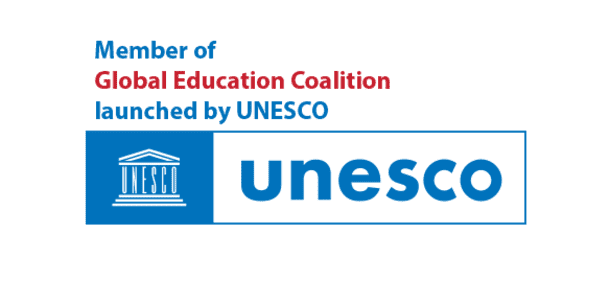
As the first EU institution in UNESCO's Global Education Coalition, IU is committed to ensuring accessible quality education to students in crisis worldwide through free online micro-credentials.
Our company partners
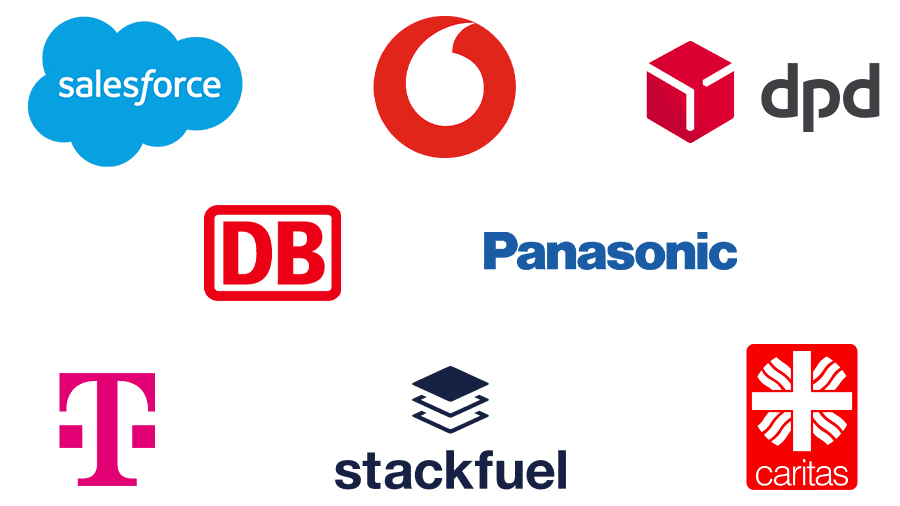
For over 20 years, IU has established partnerships with leading global companies. This offers you the chance to gain firsthand experience through internships and projects and allow us to adapt our learning content to the ever-evolving needs of the labour market. You'll benefit from an education designed to bridge the gap between theory and real-world practice, ensuring your readiness for your future career.
Recognition
Recognition of previous achievements
Have you already completed a training course, studied at a university or gained work experience? Have you completed a course or a learning path through EPIBM LinkedIn Learning, and earned a certificate? Then you have the opportunity to get your previous achievements recognised, and complete your studies at EPIBM sooner.

Save time:
Skip individual modules or whole semesters!
Even before you apply for a study programme, we’ll gladly check whether we can take your previous achievements into account: 100% online, no strings attached. Simply fill in our recognition application form, which you can find under the content section of each study programme's webpage, and upload it via our upload section. You can also e-mail it to us, or send it via post.
Send an email to [email protected] to find out which previous achievements you can get recognised. You can get your previous achievements recognised during your studies.
Recognition files
Autonomous vehicles developer
With AI, the world is your oyster! It is an emerging field, rapidly growing, ever evolving and watched with a keen eye by industries and markets globally. There are many benefits to an education in AI:
That’s why after graduating, you’ll be able to apply your professional skills and knowledge, and work for development teams at any sector you find appealing.


Augmented reality (AR/VR) developer
Virtual (or augmented) reality isn’t all just fun and games, as great and enjoyable as that aspect is. It can also be used for groundbreaking social and psychological research, defensive purposes and therapy.
With an Applied Artificial Intelligence degree from IU University of Applied Sciences, you can take part in this vital field of technological development, and work on a wide variety of interesting projects.
Change what the world thinks about the possibilities that AI offers, and make a real difference in people’s lives, while enjoying every step of the process.
F.A.Q
Frequently Asked Questions
You might also be interested in these study programmes
Accredited and certified







